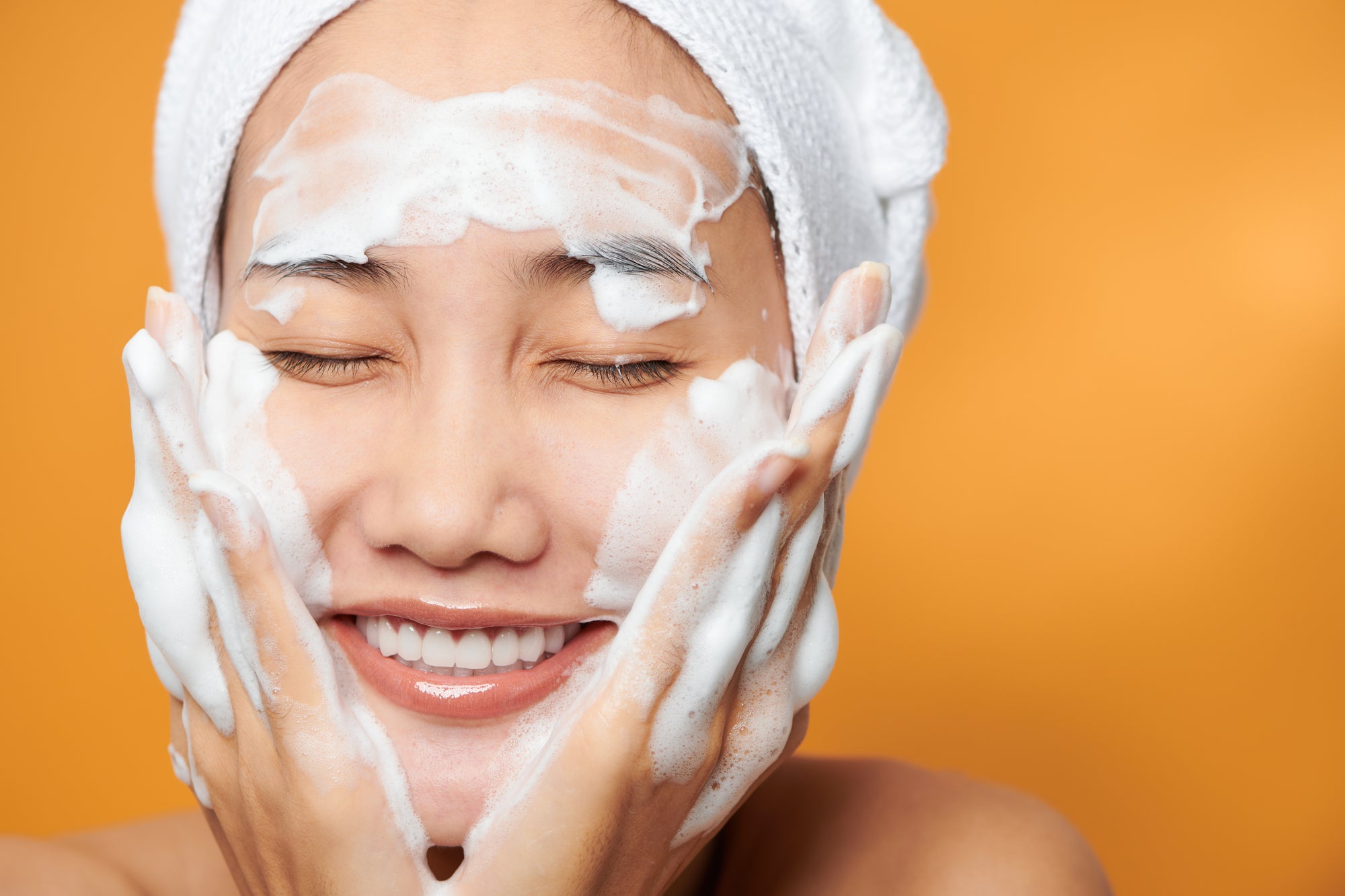

Debunking 5 Common Skin Care Myths and Misconceptions
The internet is chock-full of advice on how to care for your skin. Some articles tell you hot water is best for the skin, others say cold. Some tell you to wash your face rigorously and others advise against it. All this conflicting information leaves us wondering what tips can truly be trusted. This blog is dedicated to debunking some of the most common myths about skin care, because when it comes to nourishing our skin, nobody deserves to feel left in the dark!
Myth #1: Retinoids Thin Your Skin
There are a ton of myths concerning the side effects of retinoids, a vitamin A derivative commonly used in topical creams and other skincare products. One of the most circulated myths about retinoids is that they cause your skin to thin. When first using retinoids, a common side effect is skin peeling, but this is actually a benefit to the skin rather than a consequence.
Retinoids help to speed up skin cell turnover, which is your body’s natural process of shedding dead skin cells from the outer layer of skin and replacing them with new cells. The peeling caused by retinoids is often simply an indication that dead skin cells are being shed to make way for newer, healthier ones.
In fact, since retinoids stimulate collagen production, they can actually be used to prevent skin thinning, keeping skin looking firm and youthful even as you age.
Myth #2: Hot Water Opens Up Your Pores
You’ve likely heard the debates around hot versus cold water and which is better for your skin. A common misconception is that hot water “opens up” your pores, making it the better choice for showering and washing your face. While certain conditions can cause our pores to loosen, pores are not muscles, so they cannot open and close based on temperature.
Showering or washing your face with warm water does have its benefits. Warm water can alter the structure of the skin, making it more flexible and allowing for the oil and gunk in our pores to be more easily flushed out - this is what gives the illusion of shrinking pores. However, using water that’s too hot can strip our skin of the oils it needs to naturally moisturize the body, so frequently showering or washing your face with scalding hot water may wind up doing more harm than good.
Myth #3: Skin Repair Happens Mainly at Night
We’re often led to believe that the skin’s renewal process mainly takes place at night while we sleep, however this is not the case. Our skin is constantly in repair mode! Research has even shown that our skin is better at repairing while we’re active during the day than while we’re asleep.
Our oxygen, blood flow, cell renewal, and other important functions are further stimulated when our bodies are active and in motion, facilitating the skin’s overall healing and repairing process.
Myth #4: Dry Skin Ages Faster Than Oily Skin
Many assume that people with dry skin show signs of aging quicker than those with oily skin, but this is not always the case. Excess oil can help to hide wrinkles and fine lines, but it does not influence how quickly your skin ages.
Premature signs of aging can be caused by a variety of factors including:
- Too much sun exposure
- Repetitive facial movements (like smiling or furrowing your brows)
- Genetics
- Lifestyle choices (drinking, smoking, and overall health habits)
Any of these elements can lead to premature aging, but, rest assured, your skin type is not a prominent factor in the aging process.
Myth #5: Your Skin Type Never Changes
Since our skin types are genetically determined, it is often assumed that this means they cannot be subject to change. In reality, our skin type can shift depending on factors like hormones, aging, medication, and environmental changes. However, there is a difference between temporary and permanent changes to the skin type.
Temporary shifts can be caused by factors such as new medication or seasonal changes. These can result in the skin temporarily showing different characteristics than normal - like oily skin becoming dry in the winter. However, temporary changes are just that: temporary. Seasonal changes can cause the conditions of your skin to fluctuate, but they are not an indication that your skin type is permanently altered.
Permanent changes to your skin type are not common, however, one notable exception is that oily skin types can become dry skin types as you age. This change has been observed in post-menopausal women as their sebaceous (oil-producing) glands gradually become less active due to natural hormonal alterations.
The internet is full of misinformation about skin care. These are just a few of the many myths out there - so if you find yourself in need of a credible opinion on your skin and how to care for it, make sure to consult your dermatologist.
Check Out Our Honeybutter for Natural Nourishment!
Sources
Specialists in Dermatology PLLC: 5 Skin-Care Myths Busted | Radiance by WebMD: 9 Skin Care Myths Debunked | Harvard Health Publishing: Don’t Fall for These Skin Myths | Healthline: 13 Retinoid and Retinol Myths Debunked for Healthier Skin | Women’s Health Magazine: Can Your Skin Type Change? A Dermatologist Weighs In
